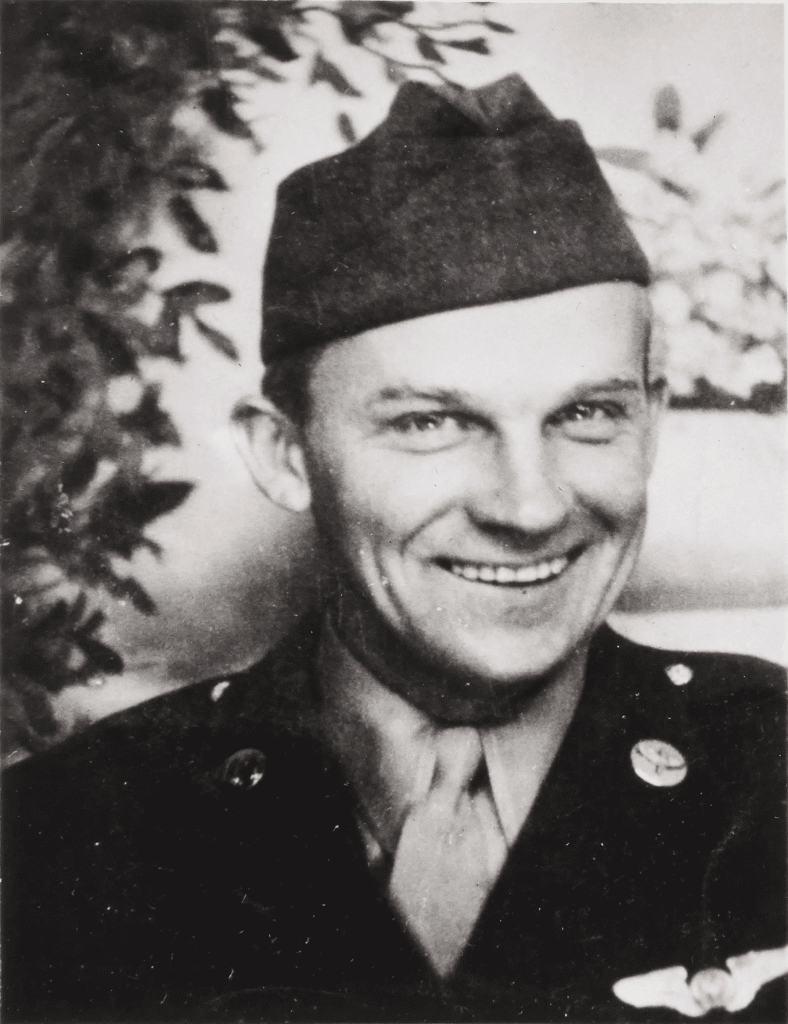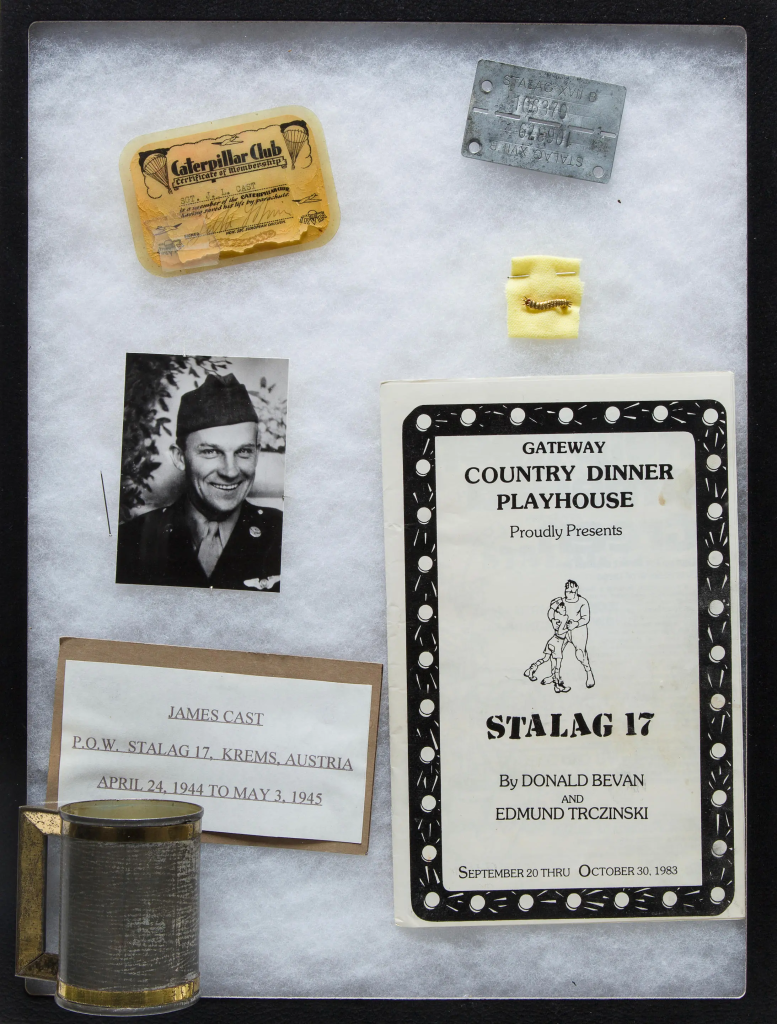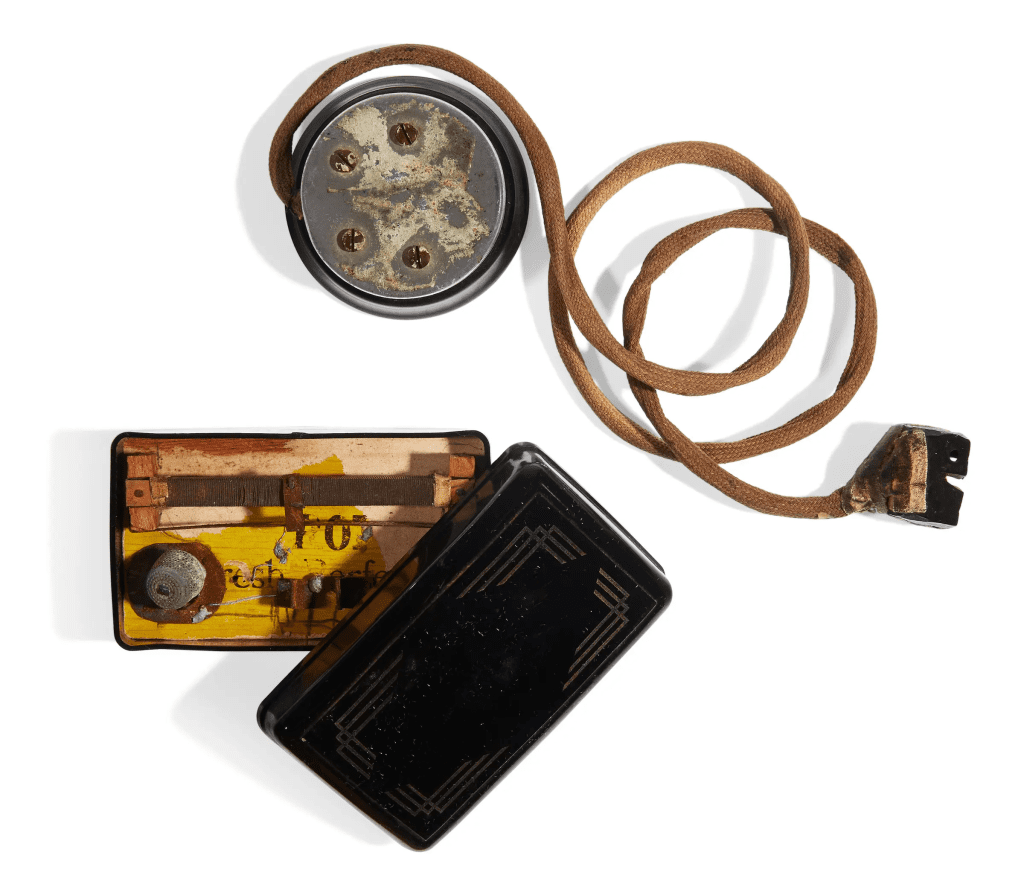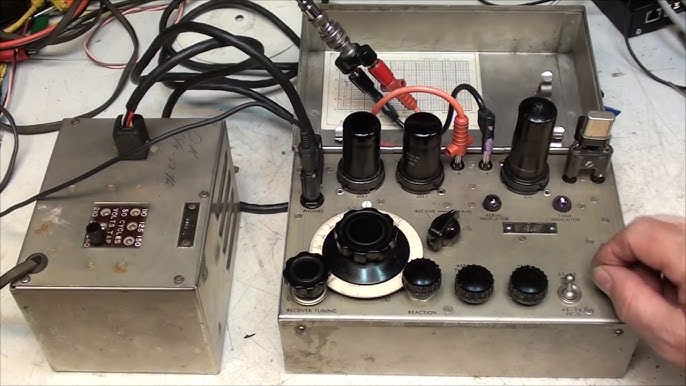In the heart of Nazi-occupied Europe during World War II, behind the chilling barbed wire of a German prisoner-of-war camp, a quiet act of brilliance and defiance unfolded one that would uplift the spirits of hundreds and remind us all of the power of courage, intelligence, and hope.

A Soldier Turned Prisoner
In 1944, U.S. Army Sergeant James L. Cast found himself captured and imprisoned in a Nazi POW camp. Life inside the camp was grueling, uncertain, and heavily censored. News from the outside world was nonexistent. The Germans worked hard to ensure that prisoners remained isolated not just physically, but mentally and emotionally, too. But Cast refused to be silenced or cut off from the truth.

An Idea Born from Scrap and Spirit
Using incredible ingenuity, Sgt. Cast managed to collect seemingly useless scraps bits of wire, metal, and even parts from discarded German equipment. Piece by piece, he began secretly assembling something extraordinary: a crystal radio.
Video:
Nazi Germany Propaganda: The Radio (1923-45)
Unlike modern radios, a crystal radio doesn’t need electricity. It uses a tiny crystal and a coil to detect radio signals, and a simple earphone to play the sound. This meant it was perfect for covert listening quiet, small, and nearly undetectable.
Building such a device in a prison camp was risky. Getting caught could mean severe punishment or worse. But Cast moved carefully and deliberately, crafting the radio in secrecy with help from a few trusted fellow prisoners.
The Day That Changed Everything
Then came June 6, 1944 D-Day.
On that historic day, while their German captors remained unaware, Cast’s crystal radio crackled to life with the news that Allied forces had stormed the beaches of Normandy. For the first time in years, hope wasn’t just a distant idea it was a real, advancing army.

Sgt. Cast shared the news quietly but widely across the camp. Word spread like wildfire among the American, British, and Allied prisoners. The impact was electric. Spirits lifted. Men who had grown thin from despair suddenly found energy in the thought of rescue. They knew the tide was turning.
The Power of Information
In a place designed to crush morale, one soldier’s courage and curiosity reignited it. Sgt. James L. Cast didn’t just build a radio he built a lifeline.
Video:
Nazi Radio Sinks Fleet
The Germans eventually learned of the prisoners’ hopefulness, but they never discovered the source. Cast’s radio remained hidden until the war ended. His act, once secret, would go on to be remembered as a testament to the power of human will and clever resistance.
A Legacy That Still Speaks
Stories like Cast’s are often buried beneath headlines and history books. But they matter. They remind us that heroism doesn’t always look like a battlefield charge it can also look like a man, quietly tuning wires in the dark, risking everything to bring a flicker of hope to those who needed it most.
In a time of war, Sgt. James L. Cast didn’t wait for permission to fight back. He simply listened and let others hear the sound of freedom coming.



